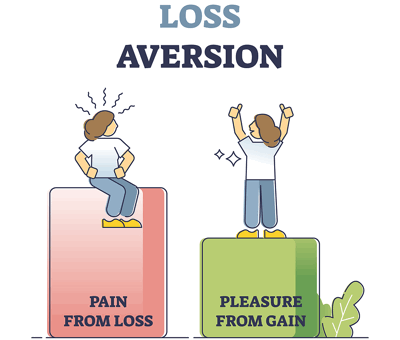
Loss aversion is a psychological bias that causes people to feel the pain of losses more strongly than the pleasure of equivalent gains. It is a phenomenon that is well-documented in the field of behavioral economics and has a significant impact on various aspects of human decision making, including betting. When it comes to betting, loss aversion can have a profound influence on how individuals approach and respond to the outcomes of their wagers. The fear of losing can often lead people to make irrational choices, such as chasing losses or avoiding risky bets altogether.
The Impact on Betting Behavior
Loss aversion affects individuals differently when it comes to betting. Some may become more conservative in their approach, prioritizing the preservation of what they already have over potential gains. Others may take more risks, attempting to recover their losses quickly and alleviate the negative emotions associated with it. This aversion to losses can also lead to a reluctance to accept losses as a natural part of the betting process. Instead, individuals might dwell on the loss, searching for ways to explain it and possibly blaming external factors for their misfortune.
Overcoming Loss Aversion
Recognizing and understanding loss aversion is the first step in overcoming its negative influence on betting behavior. By becoming aware of this bias, individuals can make more rational decisions based on probabilities and objective analysis, rather than emotional reactions. One effective approach to overcoming loss aversion is to employ a systematic betting strategy. Creating a well-defined plan that includes predetermined betting limits and sticking to it can help mitigate the emotional responses triggered by losses. With a clear strategy in place, individuals can make decisions based on logic and reasoning rather than succumbing to the emotional pull of loss aversion. Another useful technique is reframing losses as learning experiences. Instead of dwelling on the negative outcome, individuals can view losses as opportunities for growth and improvement. Analyzing the reasons behind the loss, assessing the accuracy of predictions, and adjusting future betting strategies can transform losses into valuable lessons that contribute to long-term success. Additionally, seeking support and knowledge from others can be beneficial in overcoming loss aversion. Engaging with a community of experienced bettors or seeking professional guidance can provide valuable insights and encouragement during challenging times. Having a network of support can help individuals stay motivated and focused on their long-term goals, easing the emotional impact of losses.
The psychology of betting, specifically loss aversion, plays a significant role in shaping individuals' betting behaviors. Understanding the impact of loss aversion and implementing strategies to overcome it can lead to more rational decision making and better long-term outcomes. By reframing losses as learning opportunities and maintaining a systematic approach, individuals can navigate the challenges of betting and increase their chances of success.
